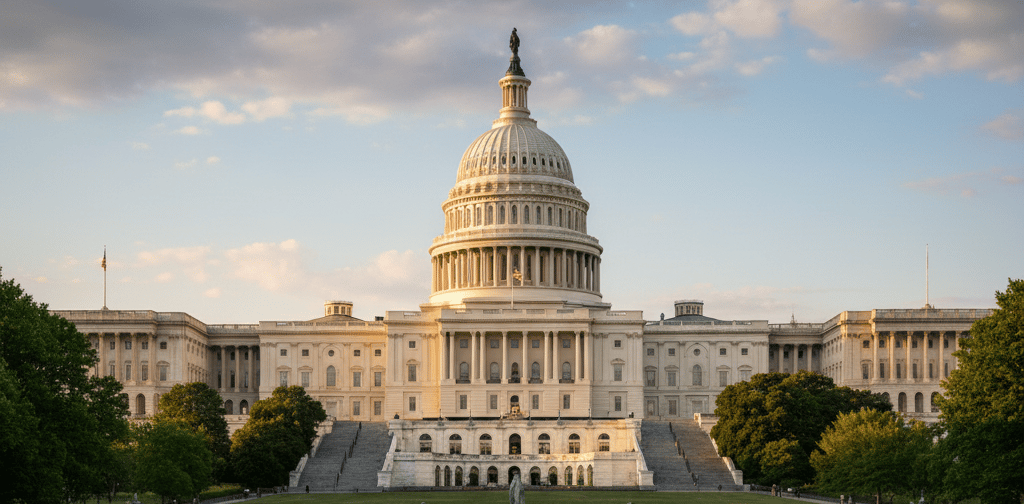“U.S. CONGRESS Just DROPPED the Biggest Pro-Bitcoin Bill EVER – What It Means for Crypto NOW 🚀”
“U.S. CONGRESS Just DROPPED the Biggest Pro-Bitcoin Bill EVER – What It Means for Crypto NOW 🚀”
PERSONAL OPINION
BTC News
11/11/20253 min read


The "Most Pro-Bitcoin Bill Ever" – A Deep Dive into US Regulatory Clarity
A new 155-page bill from the US Senate Agricultural Committee marks a potentially transformative moment for Bitcoin, establishing what many are calling the most significant positive regulatory development in US history for the digital asset. This legislation is poised to provide the long-awaited regulatory clarity and robust market infrastructure that institutional investors and corporations have been seeking.
1. Bitcoin Officially Classified as a Commodity, Not a Security
The cornerstone of this groundbreaking bill is its definitive classification of Bitcoin as a "digital commodity." This crucial provision resolves a decade-long regulatory uncertainty, explicitly ending the debate over whether Bitcoin falls under the purview of the Securities and Exchange Commission (SEC) as a security.
Impact: By classifying Bitcoin as a commodity, the bill unequivocally excludes it from securities treatment. This removes a primary source of apprehension for institutions, alleviating fears of potential SEC enforcement actions.
Regulatory Oversight: The bill transfers oversight of the Bitcoin spot market to the Commodity Futures Trading Commission (CFTC). This places Bitcoin in the same regulatory category as established commodities like gold and oil, providing a familiar and understood framework for traditional financial players. For corporations, pension funds, and banks, this clarity is a vital catalyst for engagement.
2. Establishing "Wall Street Grade" Market Infrastructure
Beyond classification, the bill introduces a comprehensive overhaul of the US Bitcoin spot market structure, mandating new rules designed to provide institutional-level comfort and security.
Exchange Registration: Digital asset exchanges will be required to register with the CFTC as "digital commodity exchanges," bringing them under a clear regulatory umbrella.
Market Integrity: The legislation aims to professionalize the crypto market by mandating stringent surveillance and monitoring systems, promoting transparency, and ensuring fair practices.
Strict Custody Standards: The bill creates explicit rules for "qualified custodians," establishing the necessary safeguards for institutions apprehensive about the security of digital asset custody.
Conflicts of Interest: It directly addresses potential market abuses by explicitly prohibiting exchanges from engaging in practices that front-run or disadvantage their users.
Clear Listing Procedures: Transparent standards for listing new assets are introduced, eliminating guesswork regarding whether a digital token constitutes a security.
3. Safeguarding Bitcoin's Core Principle: The Right to Self-Custody
Perhaps one of the most remarkable and forward-thinking aspects of the bill is its explicit protection of an individual's right to self-custody.
What it entails: This federal protection enshrines an individual's right to securely hold their own private keys, utilize hardware or software wallets, and engage in peer-to-peer transactions without intermediaries.
Significance: This provision is critical for upholding "individual sovereignty," a foundational principle of Bitcoin. It effectively "future-proofs" Bitcoin against potential future regulatory overreach that might seek to restrict individual ownership while allowing institutional participation. By protecting self-custody, the bill helps ensure Bitcoin's inherent decentralization remains intact even as significant institutional capital enters the ecosystem.
4. Paving the Way for Corporate and Institutional Adoption
This legislative clarity, in conjunction with recent accounting rule changes (such as new FASB guidelines allowing companies to mark Bitcoin to "fair value" on their balance sheets), removes what many considered the final barriers to widespread institutional and corporate adoption.
Corporations: The path is now clear for companies to confidently integrate Bitcoin as a treasury reserve asset, following pioneers like MicroStrategy. The regulatory uncertainty that once deterred corporate CFOs is significantly diminished.
Pension Funds: Traditionally risk-averse, these large funds, which demand extensive regulatory assurances, now have the comprehensive framework needed to explore Bitcoin allocations with greater confidence.
Insurance Companies: The bill provides a clear pathway for insurance providers to utilize Bitcoin – an asset often cited for its long-term resilience – to back long-term financial products such as annuities and to bolster capital reserves.
5. The "Infrastructure Phase" Preceding Hyper-Adoption
These combined elements – definitive commodity status, a regulated and transparent market, protected self-custody rights, and a clear path for corporate integration – are collectively establishing the essential "Bitcoin financial rails." This robust infrastructure is considered the necessary "scaffolding" required before a phase of "hyper-adoption" can fully materialize.
This foundational infrastructure is expected to unlock a range of institutional-grade financial products and services. These could include Bitcoin-collateralized mortgages, sophisticated corporate treasury yield strategies, Bitcoin-backed money market equivalents, and direct corporate-to-corporate settlement solutions leveraging Bitcoin. This bill represents the completion of a crucial "infrastructure phase," poised to facilitate the flow of potentially "hundreds of trillions of dollars" of currently sidelined capital into the Bitcoin ecosystem.
And if you liked the topic and are interested in learning more about self-custody options, read this article I wrote comparing different hardwallets.
